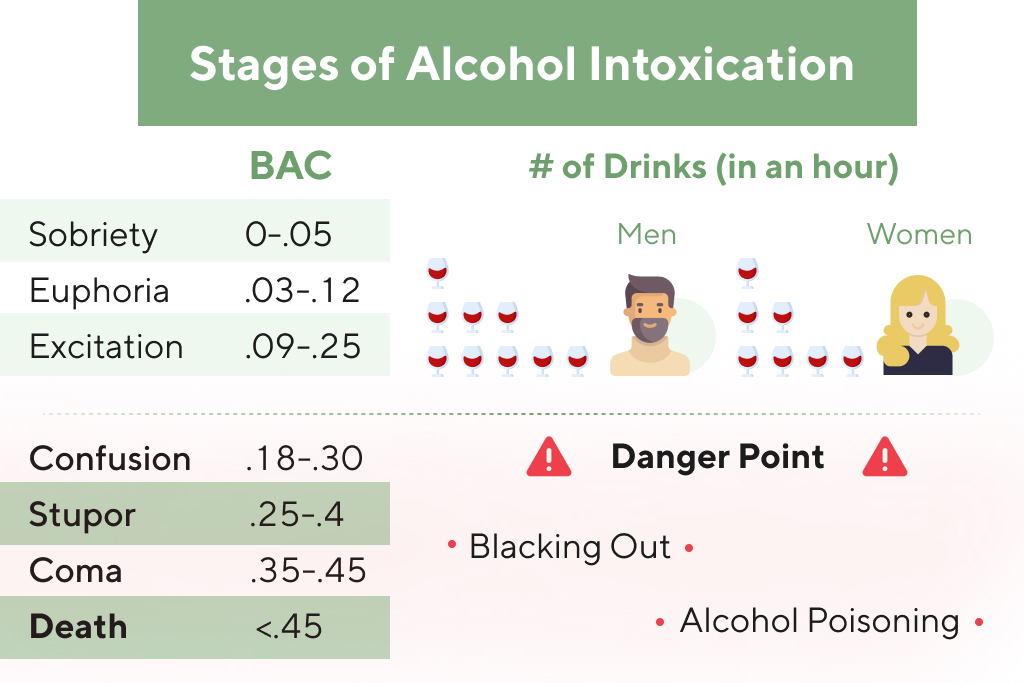Alcohol-related kidney damage can lead to dangerous imbalances, resulting in muscle weakness, irregular heartbeats, and even life-threatening complications. When the kidneys cannot effectively filter waste, toxins build up in the blood, a condition known as uremia. This can cause gastrointestinal symptoms such as nausea, vomiting, and a reduced desire to eat. Heavy alcohol use can accelerate this process and mask the warning signs until damage becomes advanced. Kidney damage treatment usually includes measures to help control symptoms and reduce complications.
- Let’s explore why this happens and what you can do to protect your kidneys while making informed decisions about alcohol consumption.
- And in rare cases, binge drinking — five or more drinks at a time — can cause a sudden drop in kidney function called acute kidney injury.
- According to the NKF, one potential symptom of AKI is flank pain, which is pain in the side of the back, between the ribs and hips.
- Recognizing these risks can help individuals take proactive steps to reduce their vulnerability.
- If you are experiencing kidney pain related to alcohol consumption, it is important to stop drinking and seek medical attention.
Treatment for Kidney Damage

Here’s what you should know about the connection between consuming alcohol and kidney pain. Chronic and heavy alcohol consumption can potentially lead to kidney failure. This occurs as a result of long-term damage to the kidneys from dehydration, high blood pressure, and the toxic effects does alcohol affect your kidneys of alcohol on kidney tissues. Short-term alcohol consumption can lead to acute spikes in blood pressure. Although moderate changes in blood pressure after drinking may not cause immediate alarm, recurrent short-term elevations contribute to long-term hypertension risks. As a diuretic, it increases urine production and can lead to dehydration, putting additional stress on these vital organs.
- Treatment options may include medication to help with inflammation, dialysis, and even kidney transplantation.
- If you notice kidney pain after binge drinking, specific care measures can help while you await a check-in with a healthcare provider.
- Heat therapy can be administered through the use of a heating pad, a warm water bottle, or a warm compress.
- If you’re concerned about the impact of drinking alcohol on your kidneys, it’s always a good idea to consult a healthcare professional for personalized advice and treatment options.
Promising results in the effort to eliminate the need for immunosuppressant medicines for transplant recipients
This condition can cause muscle proteins to enter the bloodstream and clog kidney filters. Kidney pain after drinking alcohol could be a sign of an underlying medical condition, such as liver disease. Experiencing kidney pain can range from mild discomfort to severe pain and should not be ignored.
Can Kidneys Recover From Alcohol Damage?

Acute kidney injury often goes unnoticed but is a critical warning sign of worsening kidney function. Each result comes with a detailed doctor’s explanation, so you’ll understand exactly what your results mean. If someone close to you is struggling with alcohol abuse, here’s how you can offer meaningful support to help your alcoholic friend on the path to recovery.
- Chronic, long-term alcohol consumption can damage our kidneys, leading to chronic kidney disease or failure.
- BetterHelp offers affordable mental health care via phone, video, or live-chat.
- This can be due to the kidneys needing to work harder to eliminate alcohol in the system as well as any damage the alcohol did to the liver.
- If you’re concerned about your kidney health, the best first step is to stop drinking or reduce your alcohol intake significantly.
- It may be recommended that an individual gives up alcohol, reduce weight, and adhere to a healthy diet to manage liver disease.
How Does Alcohol Affect the Vital Role of Your Kidneys?
Kidney scarring is not reversible, but there are some ways that you can slow down its progression, such as medication or diet changes. Eliminating alcohol is essential for someone suffering from Glomerulosclerosis to prevent future scarring and allow the kidney to function the best it can. Those with kidney scarring typically need dialysis or a kidney transplant to continue a healthy life Halfway house moving forward. However, it is important to note that alcohol-induced kidney damage may not always cause kidney pain. To reduce harm to a person’s health, it is best to reduce or avoid consuming alcoholic drinks where possible.
Leave a Reply